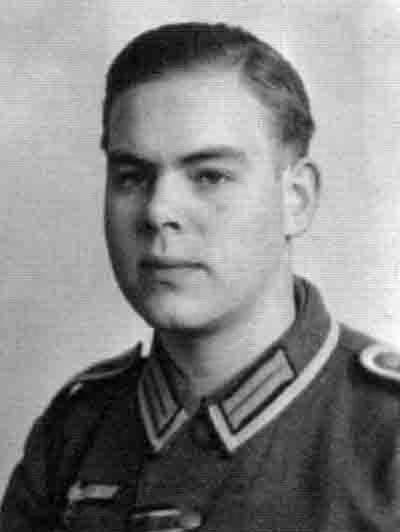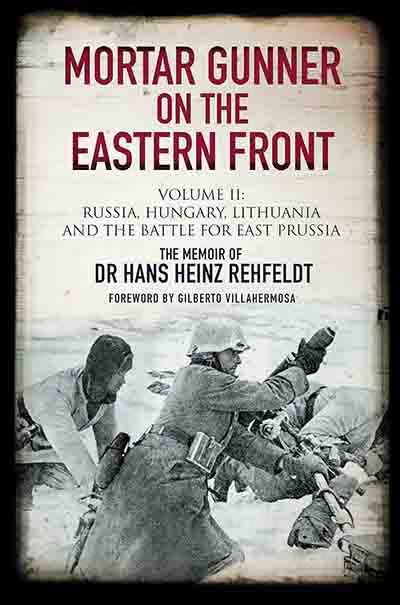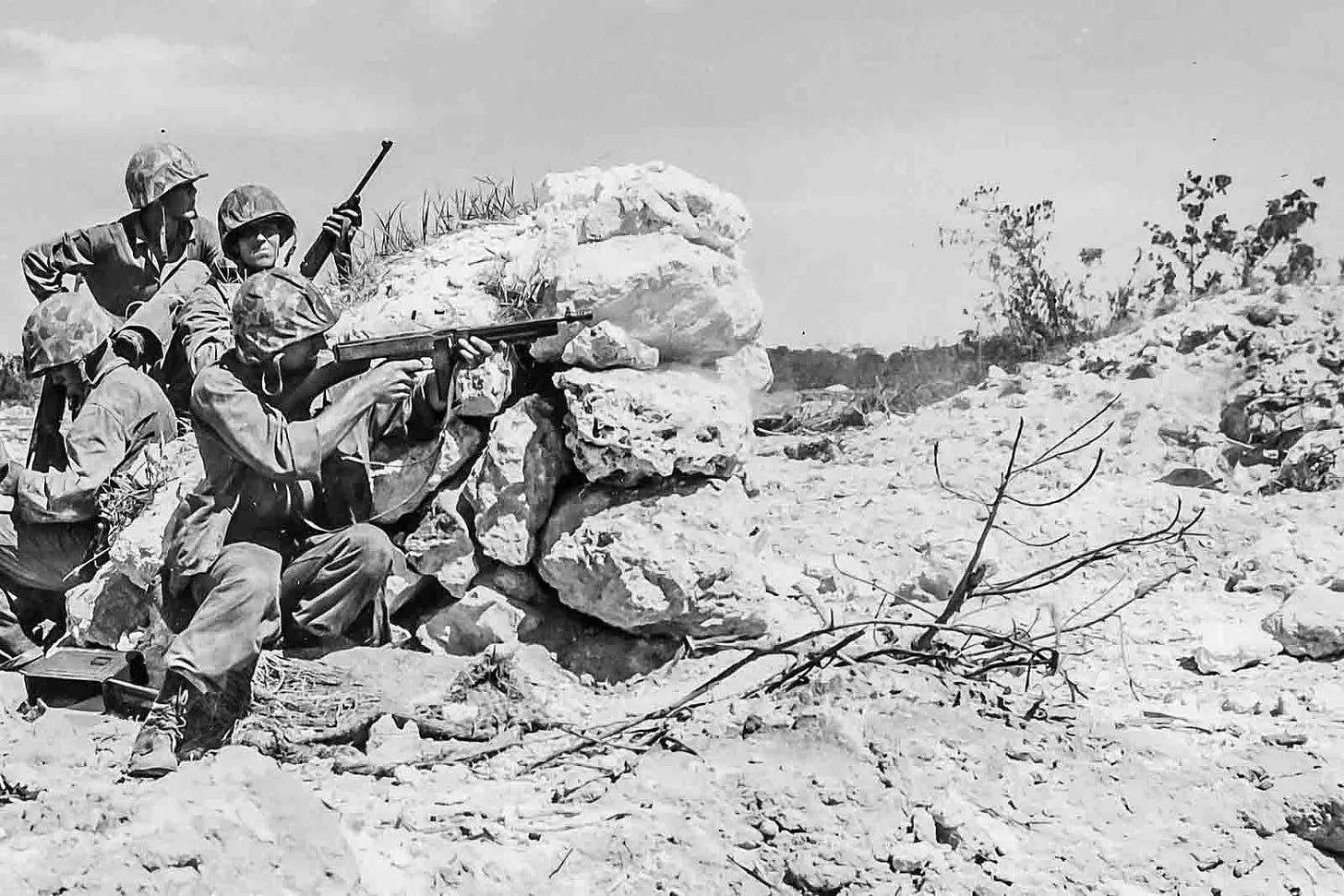'Mortar Gunner on the Eastern Front'
A German soldier's detailed memoir of events eighty years ago this week - as the Wehrmacht fall back across the border into Germany
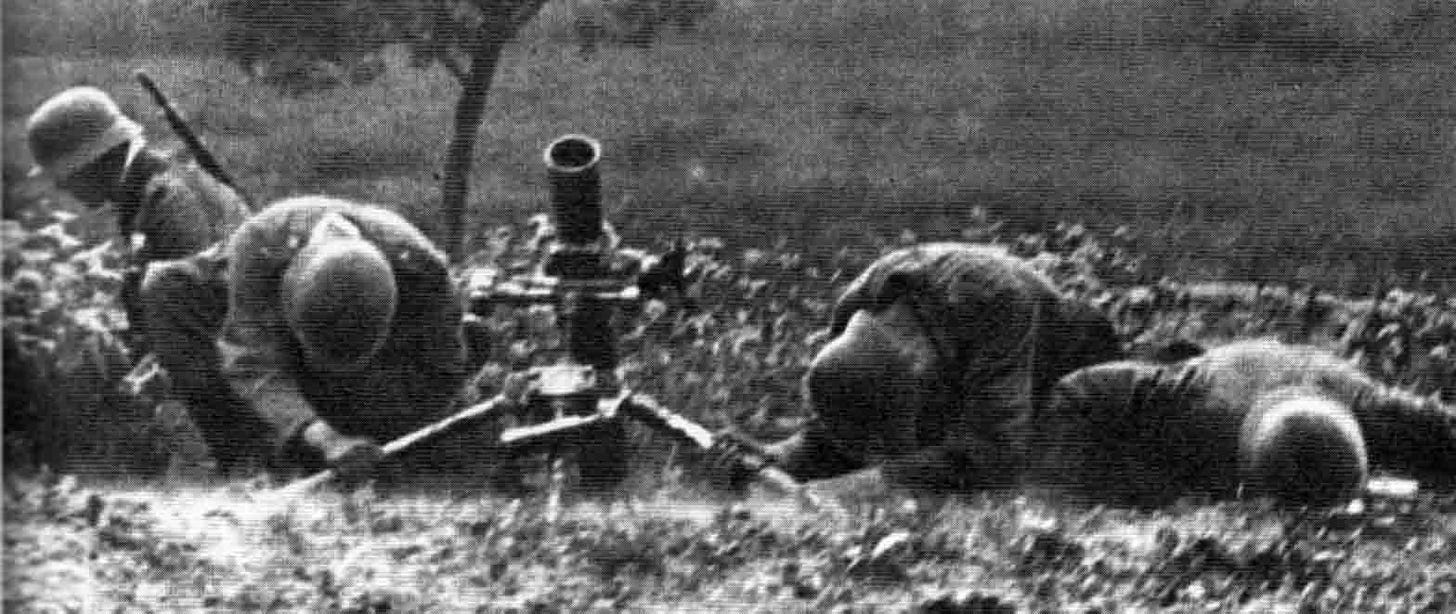
I featured an excerpt from 'Mortar Gunner on the Eastern Front: Volume I' in January 2022 - an episode when the author found himself in sub-zero trenches in January 1942. Hans-Heinz Rehfeldt had many adventures over the subsequent months. Most significantly, he had survived, was now commanding a mortar gun crew, and was still finding the time to write detailed diary notes. Many years later these formed the basis for Mortar Gunner on the Eastern Front Volume II.
This is a remarkably full picture of life on the front line on the Eastern Front. It includes a wide selection of contemporary pictures taken by the author and his fellow soldiers, as well as some fascinating Soviet propaganda leaflets that Rehfeldt collected at the time.
© Hans-Heinz Rehfeldt 2019, 'Mortar Gunner on the Eastern Front Volume II: Russia, Hungary, Lithuania, and the Battle for East Prussia.'. Reproduced courtesy of Pen & Sword Publishers Ltd
Affiliate Links
9-10 October 1944
Pull out! There now began a desperate race between the advancing Russian armour spearhead and our own troops to occupy the town and port of Memel first! We drove back to Karkelbeck for the coastal road so as to enter the outer protective line before Memel from the north via Polangen. As we rolled over the airfield at night there were explosions on the runway, enormous flashes and bangs.
During a short rest during the hours of darkness at Nimmersatt on the old German border we found a gramophone in an abandoned house. The mechanism no longer worked and we had to turn the records with a finger. We found a record suitable to our situation. Comrade Ludolf Vinzelberg was the ‘discjockey’and he worked the turntable, though at uneven speeds. On one side was the very appropriate ‘Caught in the Moorish Desert’, the song of the poor Foreign Legionnaire. We were enchanted by it and wanted an encore.
Suddenly a messenger arrived and shouted,‘Make ready at once! Load up, get in and then get a move on for Memel, otherwise Ivan will have your arses!’ Well, that was clear enough! No sooner said than done. At a crossroads was a motorcyclist who shouted to our driver, ‘Are you crazy? That way leads straight to Ivan! Memel is to the left!’ A good job he had been there or Ivan would certainly have wiped us all out. During the night Ivan bombed Polangen, but we had already passed through it.
Recently, on World War II Today …
10 October 1944
In order to make it difficult for the enemy’s vanguard, we took up positions on the road from Krottingen to Memel. Between our own troops (not Grossdeutschland) striving to reach Memel were long sad columns of refugees. Wagons piled high with furniture and people, women, children and old grandparents led the horses. With them French prisoners of war, accompanying the German farmers and helping them! They too did not wish to fall into the hands of their allies, the Bolshevists.
While we secured the road, this convoy of refugees followed close behind for Memel where they hoped that ships would be available to take them to the Reich. We received reinforcements from our fusilier regiment. We could hear fighting not so far ahead. Ivan was pushing forward energetically. After a rather nervous night, because we did not know the strength of our defensive barrier and what Ivan intended, we left the road protective position and drove on to the outskirts of Memel.
We were told that the city 'must be held at all costs' as the bridgehead between the Reich and the Kurland Army. I Battalion had positions right on the coast, then III Battalion and further east than ourselves II Battalion, Grenadier Regiment. We were soon prepared to defend. The Front ran from the coast eastwards of us over a low range of hills to the Memel—Krottingen railway line. Directly behind this line we had our mortar firing positions near the farm estates Kunken Gorge, Szodeiken-Jonell and Rund Gorge.
The observation post was located near the company command post of one of our infantry companies about 150 to 200m before us on the ‘low range of hills’. Firing sites and infantry' trenches were dug quickly', also a reserve position about 150m behind in case we were forced to fall back. When everything was complete, I put a crew on every' mortar and had the others reconnoitre the ‘hinterland’.
Soldiers are always curious and they discovered some local passenger coaches with open windows standing on the rails. In they went to search - this part belonged to the command train of the C-in-C, Army Group North! The things we found there! Tinned bread, cigarettes, chocolate, Scho-Ka-Kola, any amount of writing paper and what interested me especially, quantities of map material: land maps, ordnance survey maps and what pleased many infantrymen, batches of leave passes. They stuffed their pockets full. Personally I took possession of some good maps, cigarettes and leave passes but only because they are so useful for underhand purposes! While ransacking the train, some of our officers appeared, sealed it and later posted sentries to guard it. Our regimental command post was at Gut Purmallen. We did not have any more time for looking round.
Scarcely were we ready to defend against Ivan than he ‘raised hell’. We were enclosed here in a narrow area with only the city and port ofMemel behind us and the Baltic at our backs. This gave us a fine ‘shitty feeling’. At least we had enough ammunition on hand to defend ourselves, and we had two heavy cruisers, Prinz Eugen and Liitzow, from the Baltic in support with their very substantial firepower. Our artillery had ammunition as never before. The Russians had pushed ahead deeply to the south-west and reached the Baltic at Heidekrug. Here our various Truss were in great danger! I had a sealed metal case aboard our lorry containing all my ‘Front reports’. (Post-war note: I never saw them again.)
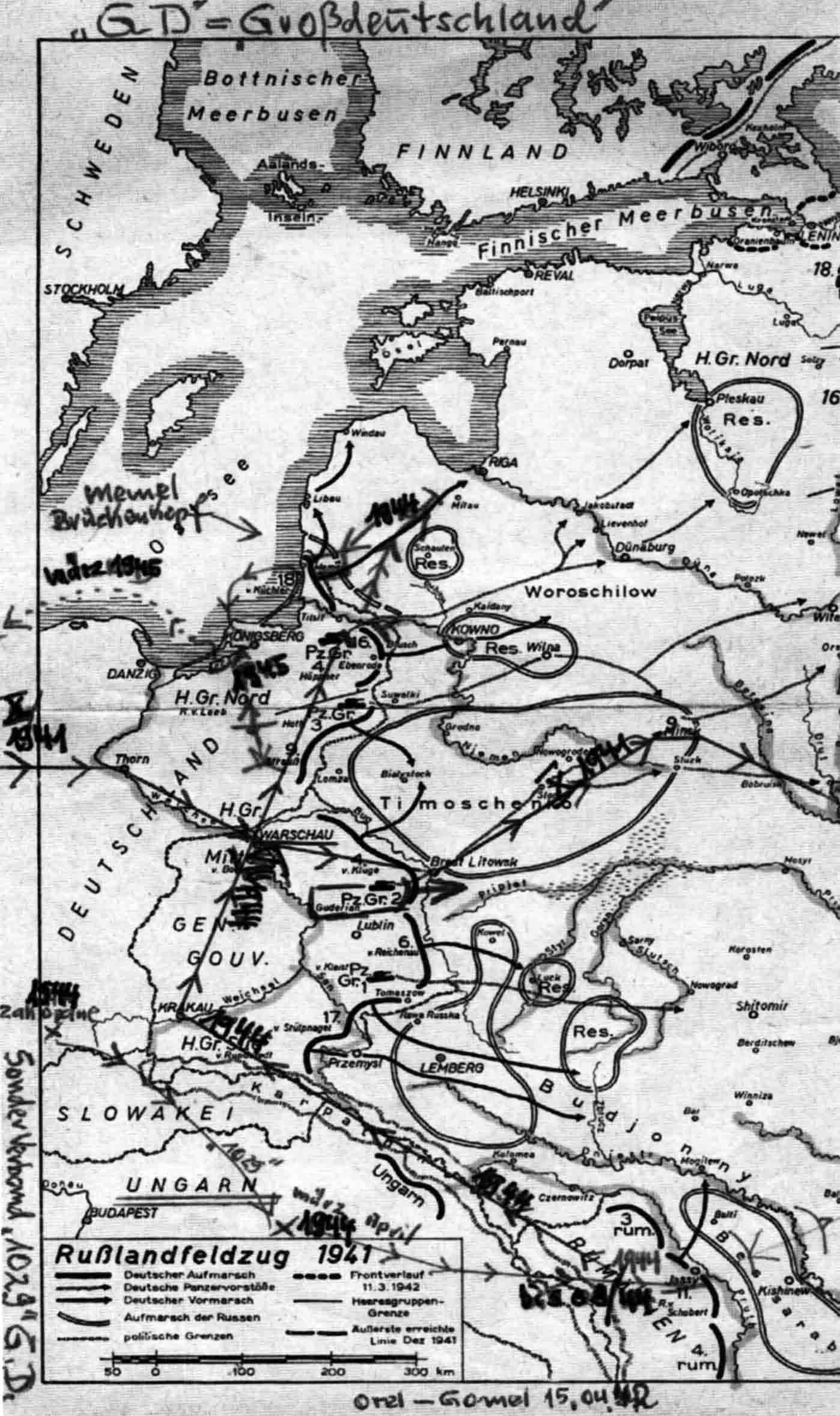
11 October 1944
The city of Memel was burning in many places as a result of bombing and artillery bombardment. During the night an attack by Ivan succeeded in breaking through at Podsseit-Stankus, but it was very swiftly repulsed. That is some kilometres south-west of us. We listened on edge to the noises of battle.
Because the Russians here are very strong and we always have to expect a major offensive at any time, our positions and bunkers are constantly improved, and we keep at it even in the short breaks between fighting. To make them rainproof, we removed the tin roof from a building, covered it with thick beams and then a half-metre of earth. The weather is wet, cold and unpleasant. In the opening days Ivan used much artillery' and tanks in the effort to wear down our positions and then break through. He was given a warm reception, with several hours of deafening thunder and explosions from both sides. When he finally realized that he could not break through, our courage and confidence grew.
It was also a joy to experience our own artillery, finally ‘topped up with ammunition’. My mortars fired without a break too. Even with their tanks, the Russians could not force their way through, some of them finishing up as burning wrecks on the main battle line.
Keep reading with a 7-day free trial
Subscribe to World War II Today to keep reading this post and get 7 days of free access to the full post archives.




